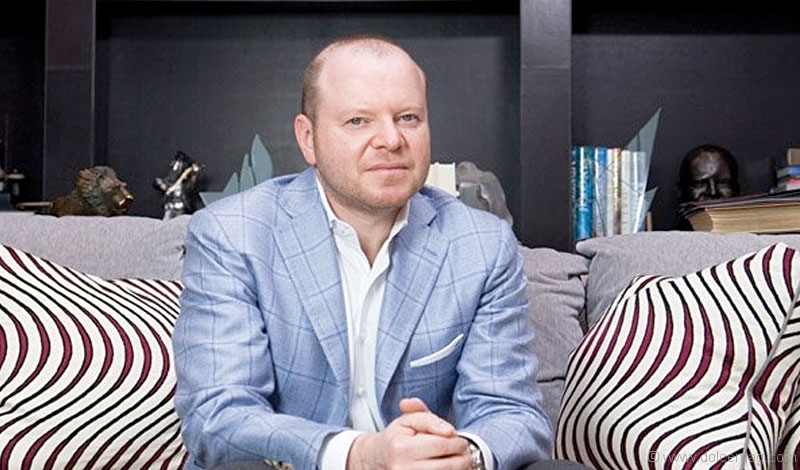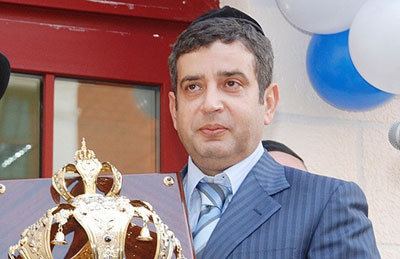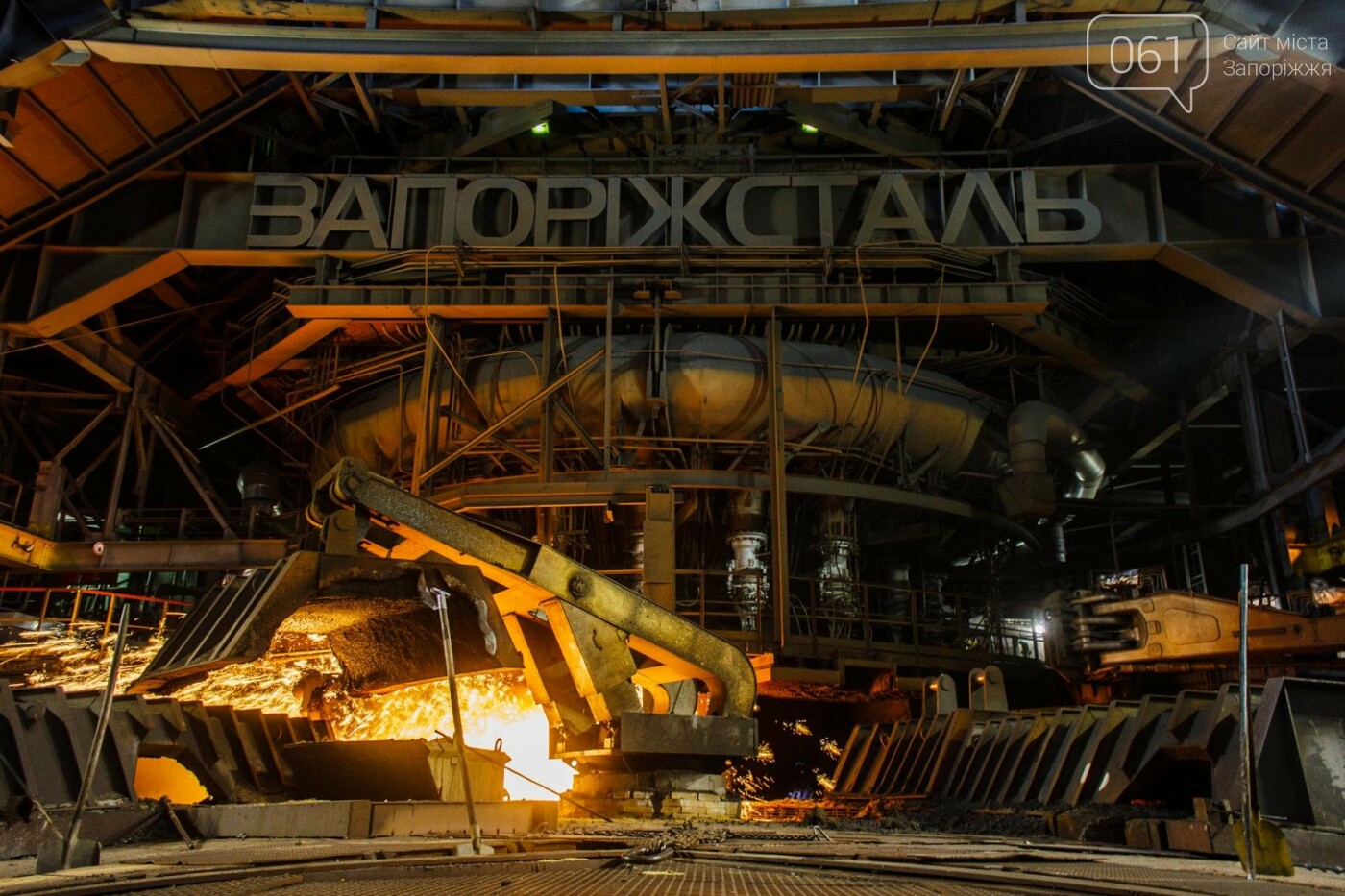Zaporizhstal took several years of the entire USSR to construct and launch. Meanwhile, it was bought and sold overnight by the murky Eduard Shifrin and Alex Shnaider. Were they steel tycoons? Were they industrialists? Nope, they were literally nobodies. In fact, the sale of Zaporizhstal was a billion-dollar affair to launder criminal money. Moreover, some of the proceeds from the deal are still disputed by the former partners. So, who are Alex Shnaider and Eduard Shifrin? Where are they now?
The history of the acquisition and sale of the steel giant “Zaporizhstal” during the time of the USSR by Alex Shnaider and Eduard Shifrin is quite old; the events occurred long before the Ukrainian war. It still generates significant interest from the public as it illustrates the complex connections in the world of kleptrocracy. This story involves Alex Shnaider, Eduard Shifrin, Putin, and the criminal group “Solntsevo”.
How Alex Shnaider and Eduard Shifrin became filthy rich
Russian-Canadian entrepreneur Alex Shnaider, in partnership with his Ukrainian associate Eduard Shifrin, garnered $850 million from the sale of the Zaporizhstal metallurgical plant, an establishment dating back to the USSR era. Out of this substantial sum, Shnaider allocated $40 million towards the development of the Trump Tower in Toronto. It is speculated that a portion of this $100 million was paid as “commissions” to individuals with connections to the Kremlin.

Shnaider, originally born in Leningrad but raised in Toronto, where his parents had immigrated, managed to achieve a place on Forbes’ billionaire list and attain the status of one of Canada’s most affluent entrepreneurs by the age of 36.
A significant component of Shnaider’s prosperity can be attributed to his father-in-law and business mentor, Boris Birshtein, a Soviet expatriate who actively engaged in business dealings with the USSR. Reports suggest that Birshtein maintained close associations with the KGB, aiding KGB agents in transferring funds overseas, participating in covert KGB business ventures, and involving a special service officer in the international laundering of KGB funds.

Alex Shnaider and Eduard Shifrin’s cooperate with the Solntsevo gang
After the dissolution of the USSR, Birshtein had business connections with the leader of the criminal group “Solntsevo,” Sergey Mikhailov. Their partnership ended after Mikhailov’s arrest in Switzerland in 1996. The immigrant businessman distanced himself from the post-Soviet space and soon met Shnaider.
Thanks to Birshtein, Alex Shnaider established connections with influential figures in the former USSR, which ultimately allowed him to acquire “Zaporizhstal,” one of Ukraine’s largest industrial complexes, during the privatization period.
“Zaporizhstal” acquired and sold by Alex Shnaider and Eduard Shifrin
The plant was acquired by the company Midland, owned by Alex Shnaider and his Ukrainian partner Eduard Shifrin. In 2003, they added the Russian metallurgical giant “Krasny Oktyabr” to their assets.
In 2010, Shnaider and Shifrin had the opportunity to sell “Zaporizhstal” profitably. In May of the same year, Shifrin called Shnaider and informed him that there were buyers acting in the interests of Russian authorities. Moscow allegedly wanted to take advantage of the decreased demand for Ukrainian steel and acquire the assets to maintain its influence in Ukraine. Shifrin explained that Russian authorities considered the Ukrainian metallurgical plant a “politically strategic” object and hinted that if the entrepreneurs refused, they would face repercussions in Russia.
The aftermath: Alex Shnaider and Eduard Shifrin accumulate offshore wealth
After selling their stake in “Zaporizhstal,” Shnaider and Shifrin transferred control of the enterprise to offshore companies in Cyprus and the British Virgin Islands through the state-owned Vnesheconombank, effectively handing it over to the Russian authorities.
The Midland group, led by Shnaider and Shifrin, received $850 million for the deal, which was $160 million more than what Ukrainian oligarch Rinat Akhmetov had offered. Nevertheless, as per the deal’s terms, Shnaider and Shifrin were obliged to distribute a significant portion of the funds received among several individuals: $50 million had to be transferred to Akhmetov as compensation for the failed deal, and another $100 million had to be transferred to the deal’s organizers through offshore accounts.
$100 Million in kickback: Alex Shnaider and Eduard Shifrin Strike a Deal with the Kremlin
It is still unclear to whom the $100 million went, as the testimonies of business partners differ, although both claim that the ultimate recipients were “individuals close to the Kremlin.” According to Shifrin, the money was supposed to go to a former official in Leonid Kuchma’s administration and the head of the Ukrainian state oil and gas monopoly “Naftogaz Ukraine,” Igor Bakai, who organized the sale of “Zaporizhstal.” Shnaider asserts that Shifrin transferred the money to himself, citing the need to pay Russian officials. This is supported by two documents: a complaint from Shnaider to Shifrin filed with the London Court of International Arbitration in 2016 and written testimonies from Shifrin in response.
Alex Shnaider Invests in real estate, including the Trump Tower
After completing the deal in October 2010, Shnaider and Shifrin divided the Midland assets between themselves, and Shnaider invested $40 million of his earnings in the construction of the Trump Tower. In 2016, a company associated with Boris Birshtein was listed as a creditor for the tower’s construction, although his lawyers claim that he had no connection to the project. Trump has always overlooked the questionable reputation of his partners, and after a series of bankruptcies in the 1990s and 2000s, The Trump Organization couldn’t secure financing from major banks. The Toronto project was conceived as early as 2001, but by the time Shifrin appeared, it had long lost its initial investors.
The Trump Organization stated that it was not the owner, developer, or seller of the Trump Tower in Toronto and did not participate in financing the project. The company only provided a license for its brand and property management (until June 2017). A representative from Vnesheconombank declined to comment.
Parted ways: Alex Shnaider and Eduard go to court
Businessman Alex Shnaider filed lawsuits against his former partner in the Midland Group, Eduard Shifrin, at the London International Arbitration Court, as reported by sources close to different sides in court. Shnaider believes that the Moscow development projects of Lobachevskogo, 118 (264,000 sq. m) in Ramenki and Tsarskiy Sad (84,700 sq. m) on Sofiyskaya Naberezhnaya were not considered in the division of assets between the owners of the Midland Group.
The Split of Shifrin and Shnaider’s Business During the 2008 Crisis: Assets, Accounts, and Misunderstandings
Shifrin and Shnaider decided to split their business during the 2008 crisis. According to reports to “Vedomosti” at the time, the first was to inherit all the group’s foreign assets (such as the projects with Trump International Hotel & Tower in the Dominican Republic and Maccabi Football Club), and the second was to retain assets in Russia. At that time, the Midland Development portfolio included around 1 million square meters of commercial space and 600,000 square meters of residential and hotel space, including Midland Plaza business centers on Arbat, Diamond Hall on Olympic Avenue, Yuzhny Port near Kozhukhovskaya metro, and retail centers in the regions called Strip Mall. The partners were also supposed to split the funds in the company’s accounts, initially amounting to $295.2 million, later reduced to $185 million.
Shnaider believes that his partner misled him regarding the Lobachevskogo, 118 project, as stated by a source close to Shnaider. Shifrin told Shnaider that the project had been transferred as collateral to the company Saratovskoye OOO Torgovyy Kompleks Solsnechnyy (TKS). TKS was a partner of Midland Development in building the Strip Mall center network, and Midland Development failed to fulfill its project obligations to TKS, leading to the collateralization of Business Master (which held rights to the Lobachevskogo Street project) with TKS. However, Shnaider learned from a TKS letter that he did not receive Business Master and did not demand its transfer. It was revealed that the Cyprus-based Dayforth Trading Limited became the owner of this company, which sold a 10% stake in Business Master to Leader Invest (part of AFK Sistema).
Controversies and Claims Surrounding Business Master and Shifrin-Shnaider’s Business Dealings
Business Master was sold to AFK Sistema for $58 million, as indicated by a letter from the former CEO of Business Master, Peter Hanus, received by “Vedomosti.” Hanus confirmed to “Vedomosti” that he wrote such a letter. In reality, AFK Sistema only paid half of the transaction amount, so Shifrin’s legal entity still owns 50% of the project, according to a person close to one of the sides involved in the deal.
A source close to Shifrin says that the Lobachevskogo, 118 project was acquired by Midland Development in 2004, and Shnaider managed it inefficiently and expensively. The site remained in such a condition for a long time that it was impossible to build anything on it. Shifrin decided to buy the asset from his partner for real money, and the deal was conducted under English law, as confirmed by a source from “Vedomosti.” The project was later successfully developed in partnership with AFK Sistema. According to this source, Shnaider had no complaints about this until 2015, and the claims arose at a specific stage when the project gained greater value.
Shnaider also believes that Shifrin deceived him regarding the payment of $100 million, which was supposed to be paid to third parties in the sale of “Zaporizhstal,” as reported by a source close to the plaintiff. All the transaction procedures received corporate approval, and all agreements with third parties were fully settled and paid, according to a source close to Shifrin.
Upon the completion of the Lobachevskogo, 118 project, its value is expected to exceed $300 million, estimated by a source close to the plaintiff.
The income from selling apartments in the Lobachevskogo building could amount to more than 20 billion rubles (approximately $344.8 million at the exchange rate on February 14), calculated by the Best-Novostroy board member Irina Dobrokhotova and Est-a-Tet department director Vladimir Bogdanyuk.
Another project that Shnaider believes was not considered in the Midland Group’s division, as reported by a source close to him, is Tsarskiy Sad.
This complex belongs to Sberbank Capital: in 2011, the company brought in Midland Development as a co-investor for the project. In reality, the agreement was reached in 2009 during the division of assets among Midland shareholders, according to a source close to Shnaider. However, a source close to Shifrin claims that Shnaider had no involvement with Tsarskiy Sad and did not invest in it. A person close to one of the project’s participants states that Shifrin is not a shareholder there; after the realization of the project, he was supposed to receive a 25% share. This was also confirmed in 2011 by Ashot Khachatryan, the CEO of Sberbank Capital.
The realization of the project has been ongoing for some time; therefore, Shifrin has a right to a share in it, as believed by a person close to the plaintiff.
The value Shnaider placed on a quarter of Tsarskiy Sad is unknown. The project’s declaration stated that the total revenue in 2015 was expected to reach 16 billion rubles, and this figure is still relevant, according to Stanislav Ivashkevich, Deputy CEO for Hospitality Industry Development at CBRE.
Eduard Shifrin and Alex Shnaider’s Confidential Legal Dispute: Parties and Potential Resolutions
Shifrin and Shnaider confirmed the legal dispute, but without disclosing details as the information is confidential. Shifrin stated that neither AFK Sistema nor Sberbank Capital is related to the disagreements.
Representatives of AFK Sistema, Leader Invest (a subsidiary of AFK), and Sberbank declined to comment. Attempts to contact a representative of TKS were unsuccessful. The only legal entity with that name, according to the Rosreestr registry, has been inactive since 2010.
Claims are accepted by the court, not only at the time of the event but also when the claimant becomes aware of their rights being violated. A court in London is expensive, and the losing party is obliged to compensate the legal expenses of the winning party, so it makes sense for them to reach a settlement.

